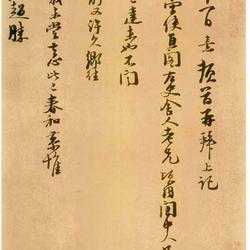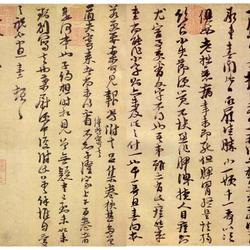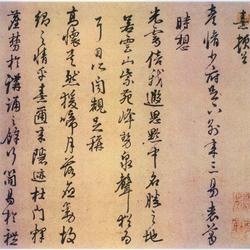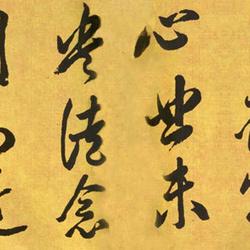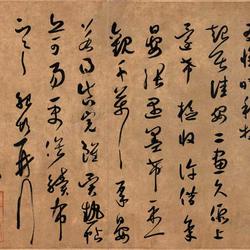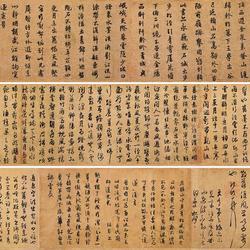
Yue Fei's "Execution of the Master" (part and whole), cursive script. According to Ouyang Fu's "Collecting the Ancients and Seeking Truth", this was the Ming Dynasty Chenghua and was forged by Bai Lin during the Hongzhi period. Yue Fei's original work does not exist at present.
"Preceding the Military Expedition" is a memorial written by Zhuge Liang to Emperor Liu Chan before he led his army to the Northern Expedition in 227 AD. He said that he had been favored by Liu Bei three times, and that he had been entrusted with the solemn responsibility, and he must devote all his loyalty and wisdom to "restoring the Han Dynasty" and serve him till death. "The Later Discipline" is a statement written by Zhuge Liang again after his defeat in Jieting. The famous saying that has been passed down through the ages, "Dedicate yourself to the utmost, and die after death" appears in this table.
As for the reason why Yue Fei wrote "Departure Watch", in August of the eighth year of Shaoxing in the Southern Song Dynasty (1138), Yue Fei, who was attacking the Jin soldiers, passed by Nanyang and visited the Wuhou Temple. Yue Fei wrote in the "Postscript": "Looking forward in August in the Wuwu Autumn Period in Shaoxing. , passed through Nanyang, and visited the Wuhou Temple. When it rained, I stayed in the temple. Holding the candle more deeply, I carefully looked at the literature of the temple, poems and poems praised by the past sages on the wall, and the two stone carvings in front of the temple. Unconsciously, tears fell like rain. That night, I couldn't sleep, so I sat and waited for dawn. After the Taoist offered tea, he took out the paper, asked for words, and started writing with tears in his eyes. He didn't care about his clumsiness at work, just to relax his chest and depressed ears. Yue Fei also knew it." Some people say that this is a legend from later generations, and it is also recorded in historical records. There is no record of Yue Fei coming to Nanyang to write an inscription at Wuhou Temple.

